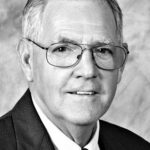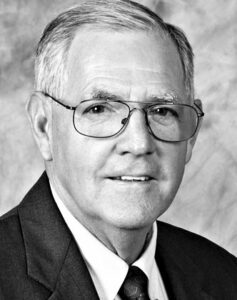The Universal Church: “… and on this rock I will build my church” (Matthew 16:18); “… because I persecuted the church of God” (1 Corinthians 15:9); “… just as Christ loved the church… to present her to himself as a radiant church” (Ephesians 5:25–27); “… for the sake of his body, which is the church” (Colossians 1:24); “to the church of the firstborn, whose names are written in heaven” (Hebrews 12:23).
The Local Church: “If he refuses to listen to them, tell it to the church” (Matthew 18:17); “In the church at Antioch there were prophets and teachers” (Acts 13:1); “From Miletus, Paul sent to Ephesus for the elders of the church” (Acts 20:13); “I commend to you our sister, Phoebe, a servant of the church in Cenchreae” (Romans 16:1); “Greet also the church that meets at their house” (Romans 16:5); “To the angel of the church in Ephesus, write” (Revelation 2:1).
It is clear from the Scripture references above that the New Testament speaks of both the church universal (which comprises all of the true believers throughout history, from every kindred, tribe and tongue) and also speaks of local churches (which consist of all of those separate bodies of Christ who meet together for worship, study, prayer and communion, in local congregations).
The Universal Church has in it only true believers, ones who have been called by the Spirit to trust in the saving work of Christ, who are kept eternally by the love of God and who will be presented to Christ without spot or blemish.
Local Churches have in their membership people who are professing believers, some of whom are genuinely saved, while others are unsaved and are still lost in their sins. Sometimes it is impossible to clearly distinguish between the two, because often unbelieving members exhibit many of the outward characteristics of believers. But the Lord knows who are His.
By far most of the commands in the New Testament are given to believers in the context of local churches. Christians (and church leaders) are told:
• To guard the flock (Acts 20:28, 31)
• To use their spiritual gifts for each other (Romans 12:3–13; 1 Corinthians 12:1–30; Ephesians 4:7–16; 1 Peter 4:7–11)
• To rejoice with those who rejoice and to mourn with those who mourn (Romans 12:15)
• For the strong and the weak brothers to accept one another (Romans 14:1–15:13)
• Not to fellowship with a brother who is living in unrepentant sin (1 Corinthians 5:1–13)
• To make judgments regarding disputes (1 Corinthians 6:1–11)
• To support those who preach and teach (1 Corinthians 9:1–27)
• To take communion together in a worthy manner (1 Corinthians 11:17–34)
• To collect a relief offering on the first day of the week (1 Corinthians 16:1–4)
• To greet one another with a holy kiss (1 Corinthians 16:19; 2 Corinthians 13:12)
• To forgive a repentant sinner (2 Corinthians 2:5–11)
• To restore a brother (Galatians 6:1)
• To carry each others’ burdens (Galatians 6:2)
• To look after the interests of others (Philippians 2:4)
• To help solve member problems (Philippians 4:3)
• To keep away from those who are idle (2 Thessalonians 3:6–15)
• To choose qualified elders and deacons (1 Timothy 3:1–13; Titus 1:5-9)
• To honor spiritual leaders (1 Timothy 5:17–19)
• To warn those who are false teachers and those who are quarrelsome (2 Timothy 2:14–26)
• To teach one another (Titus 2:1–10)
• To remind the members to be obedient to authority (Titus 3:1–2)
• To warn a divisive person (Titus 3:9–11)
• To encourage one another daily (Hebrews 3:12–15)
• Not to forsake assembling themselves together in the local church (Hebrews 10:25)
• To look after orphans and widows (James 1:27)
• Not to show favoritism (James 2:1–4)
• To confess their sins to each other and to pray for each other (James 5:13–16)
• To serve as examples to the flock (1 Peter 5:1–4)
• To be submissive to elders (1 Peter 5:5)
• To repent (Revelation 2:1–3:22)
This is not a complete list, but merely a sampling of the many commands given to and for the local churches in the New Testament—and to our churches today.
There are many professing Christians who do not attend a local church, saying that they “can be a Christian without going to church.” However, it is clear from the many examples given above that such people cannot be obedient Christians, for these commands must be obeyed in the context of a local church.
Trying to be a “lone ranger” Christian, outside of a church body, causes one to also miss the many joys one can have in the local church, such as fellowshipping with brothers and sisters of like mind, rejoicing with those who rejoice, jointly promoting the gospel, caring for each other spiritually, physically and financially, praying for each other, restoring one another, even weeping with those who weep. To cut ourselves off from these wonderful opportunities is to rob ourselves of many of the blessings Christ provided for us through the local church. It is also to disobey the Head of the church. Church involvement should be He–centered rather than me–centered.

This article is an excerpt from Curtis Thomas’ book – Life in the Body of Christ: Privileges and Responsibilities in the Local Church. A new hardcover edition is now available for pre-order for $19.98 at press.founders.org






















